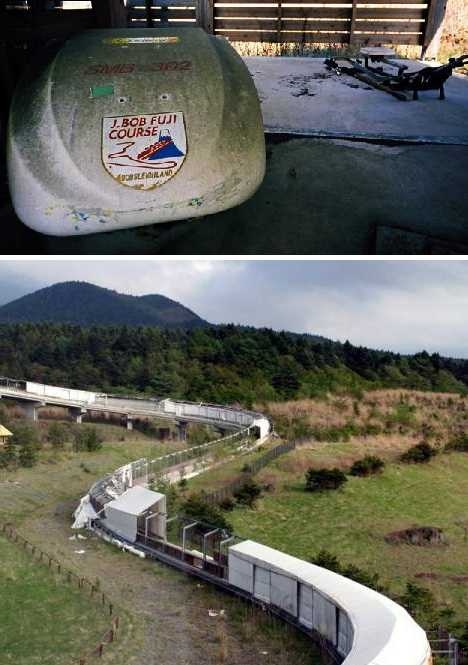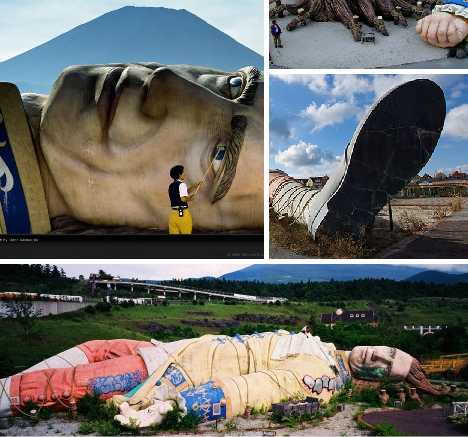
Gulliver’s Kingdom Theme Park, built in the shadow of Japan‘s Mount Fuji with oodles of government stimulus money, was a sprawling white elephant that existed for only 10 years. Today there’s little if any trace of the abandoned theme park, its ruins, or Gulliver himself but the eerie and unsettling images captured by a legion of intrepid “haikyo” explorers.
Time and Tied
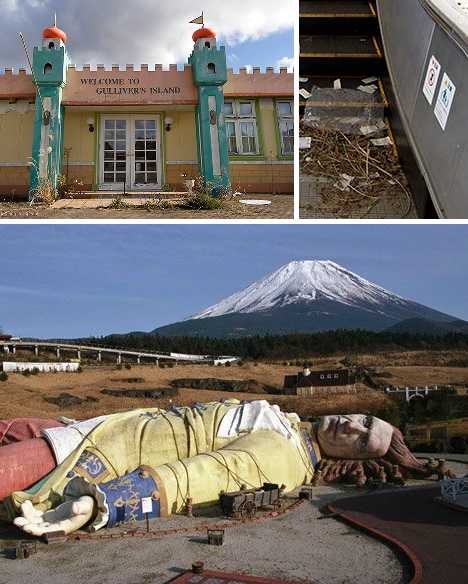 (images via: Spechtrograph and Michael John Grist)
(images via: Spechtrograph and Michael John Grist)
Gulliver’s Kingdom was a failed theme park located near Kawaguchi-machi, Yamanashi prefecture, Japan. The park opened in 1997 and typified the “bridge to nowhere” construction projects Japan’s government and banking sector championed in the 1990s.
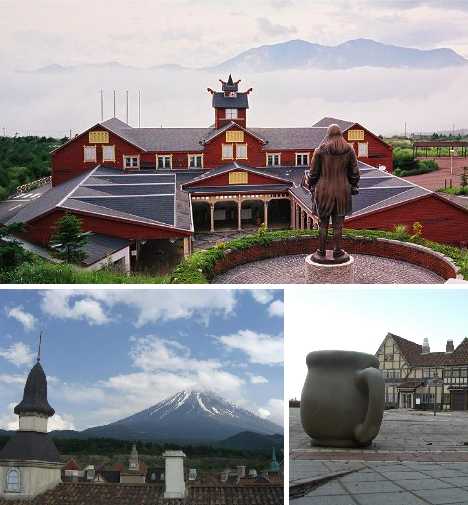 (images via: UER and Kuroneko)
(images via: UER and Kuroneko)
Though intended to boost the economy out of its post-bubble doldrums, white elephants like Gulliver’s Kingdom created some short-term construction jobs but little permanent employment.
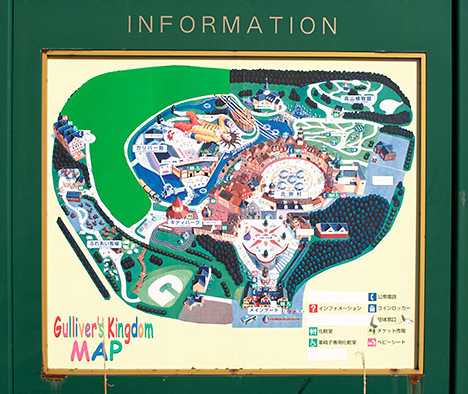 (image via: Spechtrograph)
(image via: Spechtrograph)
Gulliver’s Kingdom was backed financially by the Niigata Chuo Bank, which later collapsed into a sea of red ink and toxic, non-performing loans. As it morphed into a so-called Zombie Bank, the Niigata Chuo Bank was ordered to clear its books of unprofitable assets, of which Gulliver’s Kingdom was one: they had lent the venture around $350 million. In October of 2001, the unpopular theme park shut its Brobdingnagian doors for the last time.
Cult of Poison-ality
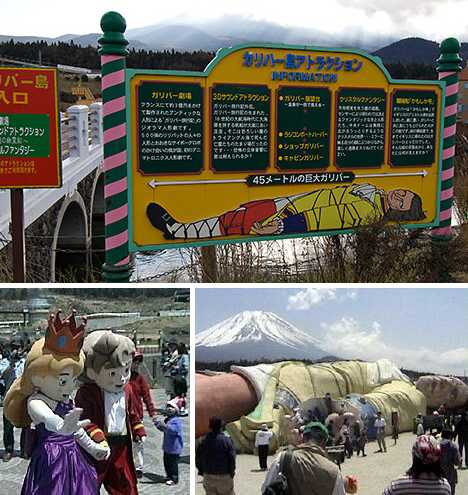 (images via: Spechtrograph and Dreamin’ Trip Salad)
(images via: Spechtrograph and Dreamin’ Trip Salad)
On the face of it, Gulliver’s Kingdom had a few things going for it. Its location, for one thing – nestled in Kamikuishiki village at the foot of Mount Fuji. About 25 million tourists descend upon Mount Fuji’s environs each year and as beautiful as it is, how long can one look at a dormant volcano?
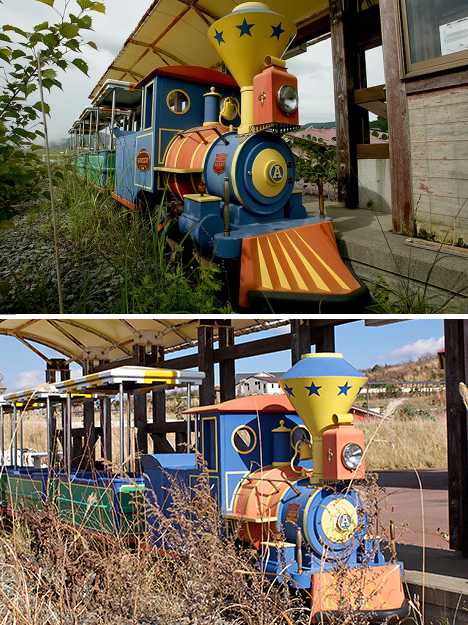 (images via: K3N’s Blog and Spechtrograph)
(images via: K3N’s Blog and Spechtrograph)
And about that location… Mount Fuji has a dark side, most notably the Aokigahara area where seemingly oblivious project planners decided to build Gulliver’s Kingdom. Ranked sixth by the website Cracked.com on their list of The 6 Creepiest Places on Earth, Aokigahara is Japan’s “suicide forest” – said to be the second most popular suicide location after San Francisco’s Golden Gate Bridge. On the bright side, if the kids are driving you nuts after an afternoon spent at Gulliver’s Kingdom… well, perish that thought.
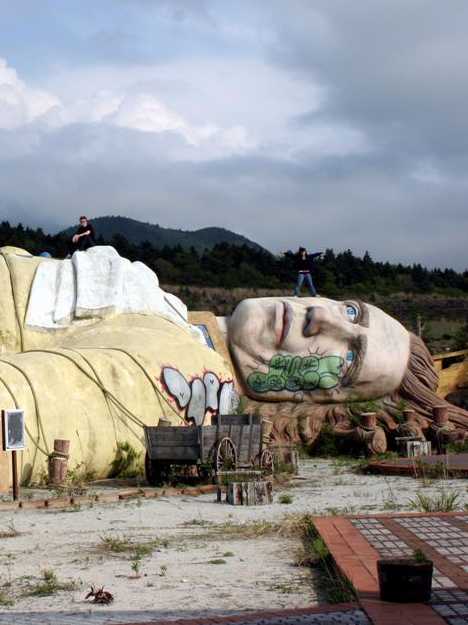 (image via: MutantMandias)
(image via: MutantMandias)
Bad enough Gulliver’s Kingdom had a suicide forest as its neighbor, the park’s other neighbors were much, much worse. Kamikuishiki village is notorious for being the location of the Aum Shinrikyo doomsday cult’s headquarters and nerve gas production facility.
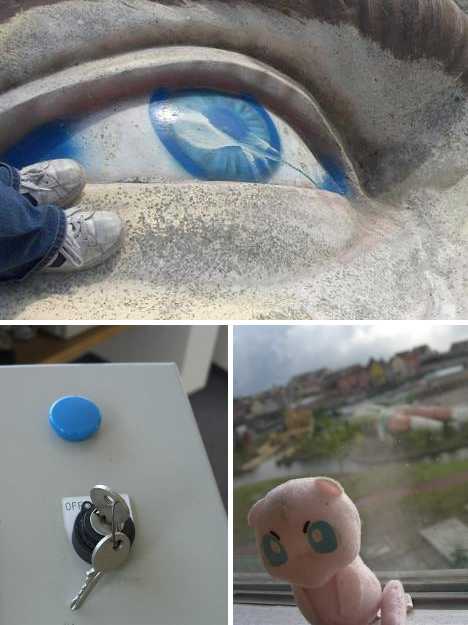 (image via: UER)
(image via: UER)
Remember Aum? They’re the whack-jobs who carried out Sarin gas attacks that killed 19 people, including 12 on the Tokyo subway. On March 22nd, 1995, the cult’s compound was stormed by over 1,000 police officers decked out in full-face gas masks.
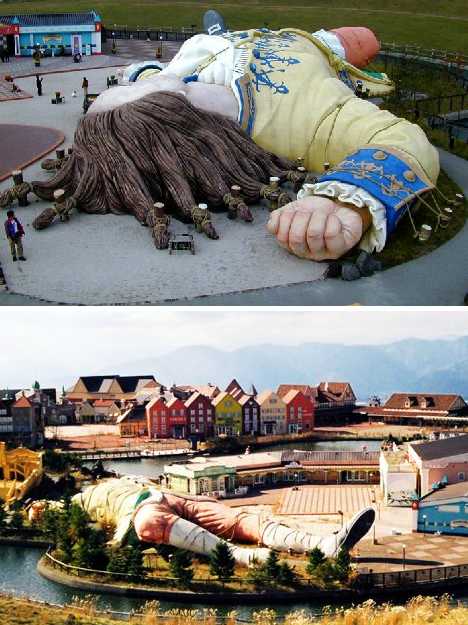 (images via: Michael John Grist and UER)
(images via: Michael John Grist and UER)
Three years later (and one year after Gulliver’s Kingdom opened), residents living nearby were still being reminded of Aum Shinrikyo’s monstrous crimes. “I can still smell the chemicals sometimes when I take a walk in the morning,” said 69-year-old Norie Okamoto, who lives just 100 meters (330 ft) from one of the cult’s former Sarin production facilities. Now Robert Duvall might love the smell of napalm in the morning, but you and your family out for some fun at Gulliver’s Kingdom? Not *cough* so much.
Gulliver Unravels
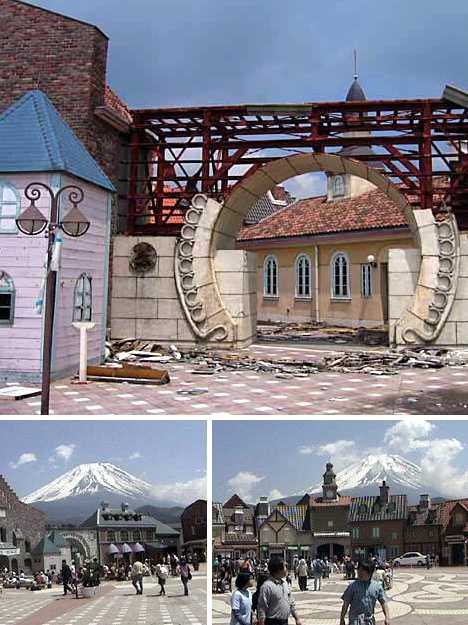 (images via: Michael John Grist and K3N’s Blog)
(images via: Michael John Grist and K3N’s Blog)
The exposure of Aum Shinrikyo was pretty much the straw that broke the back of Gulliver’s Kingdom, though there was really so much wrong with the park on so many levels one might say it was clearly doomed from the start.
(images via: UER and MutantMandias)
Gulliver’s Kingdom wasn’t actually a Six Flags style park, by the way. The closest things to the usual amusement park rides and rollercoasters were a bobsled track and a luge course – not exactly ideal for the kiddies.
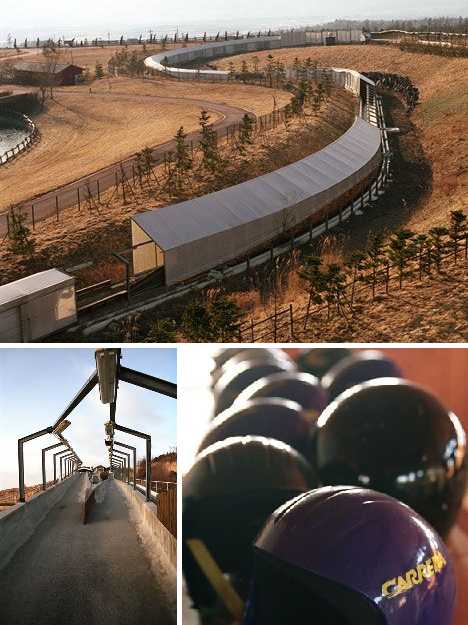 (image via: UER)
(image via: UER)
We don’t recall Gulliver’s Kingdom as being a stop on the World Bobsled Tour (if there is such a thing), but maybe that whole nerve gas factory proximity thing put organizers off scheduling events there.
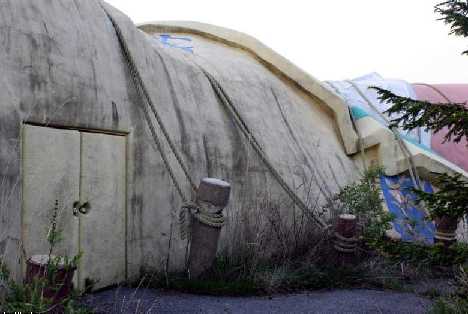 (image via: MutantMandias)
(image via: MutantMandias)
Let’s not forget the immobile star of the show, a 45 meter (147.5 ft) long statue of Jonathan Swift’s epic character. Even the name of the park was a misnomer. If it’s Gulliver’s Kingdom, what’s the big guy doing securely pegged to the ground? No way to treat a king, now is it? Those are just some of the questions we’ll never know the answers to… and here’s one more: what’s inside the doors cut into Gulliver’s body??
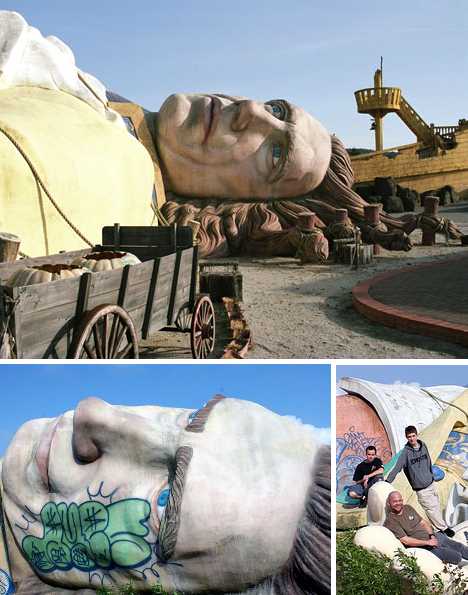 (images via: MutantMandias)
(images via: MutantMandias)
All that’s by the by, by the way, since Gulliver’s Kingdom is no more… and I mean literally. After a thorough demolition in 2007, all one can see are some exposed foundations and the odd tuft of asbestos insulation snagged on twisted rebar.
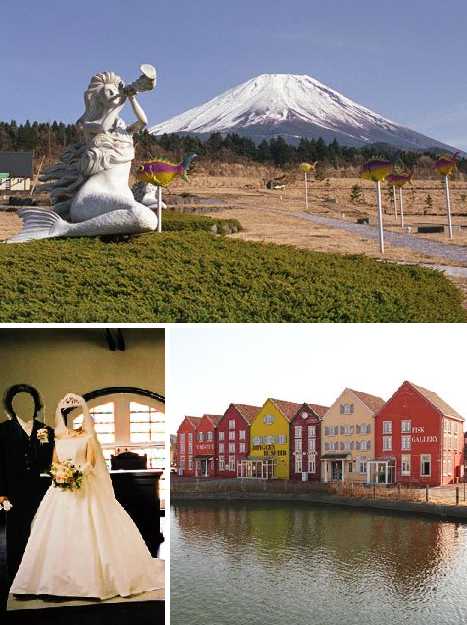
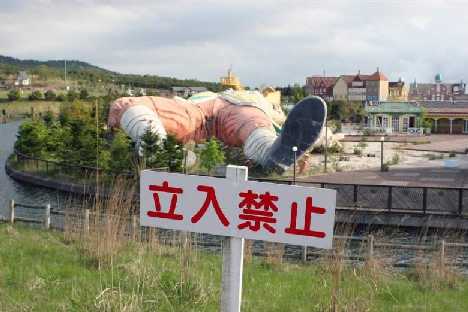 (image via: UER)
(image via: UER)
If not for these vivid and disturbing photographic images, few would be the wiser as to what came and went at the foot of Mount Fuji almost as fast as the 2010 movie Gulliver’s Travels appeared and then vanished from your local marquee. Both, as it happens, were in 3D.
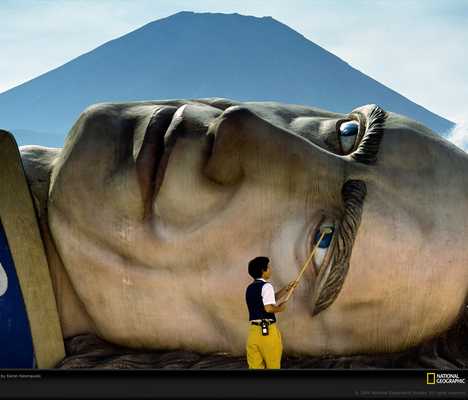 (image via: National Geographic)
(image via: National Geographic)
Nothing remains of Gulliver’s Kingdom today but a rough concrete scar, and even this basic foundation is gradually being subsumed by dirt, dust and windblown sand. Was it all a dream? Perhaps it was… and if any lessons can be learned by Gulliver’s Kingdom’s rise, fall and disappearance it’s that if one must dream, at least dream big.
